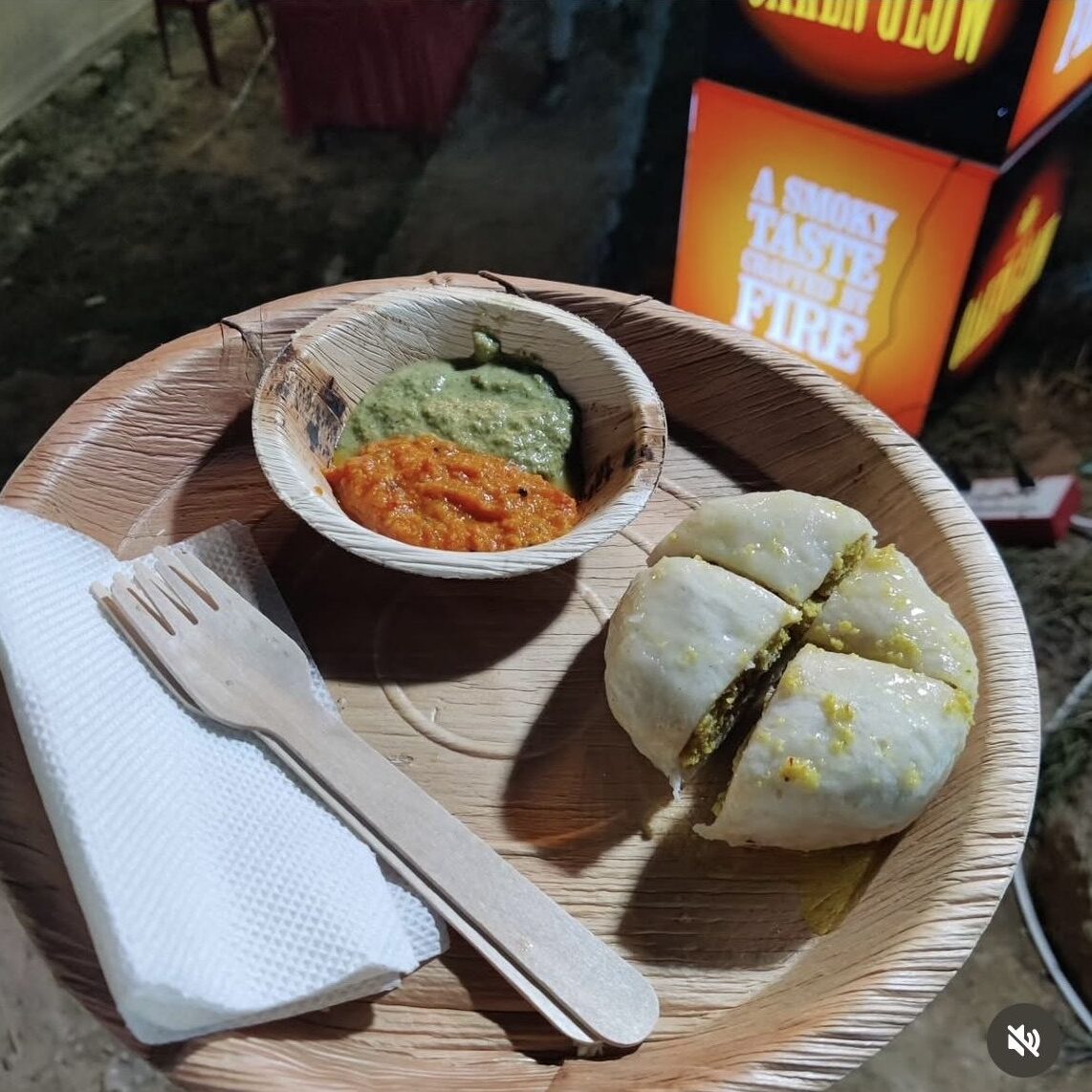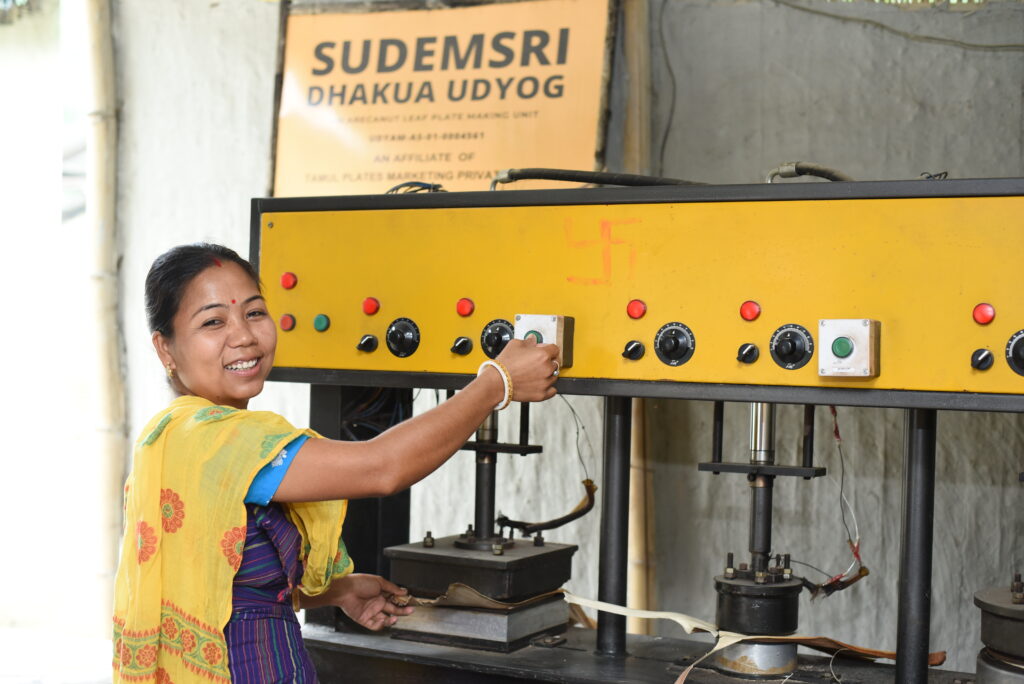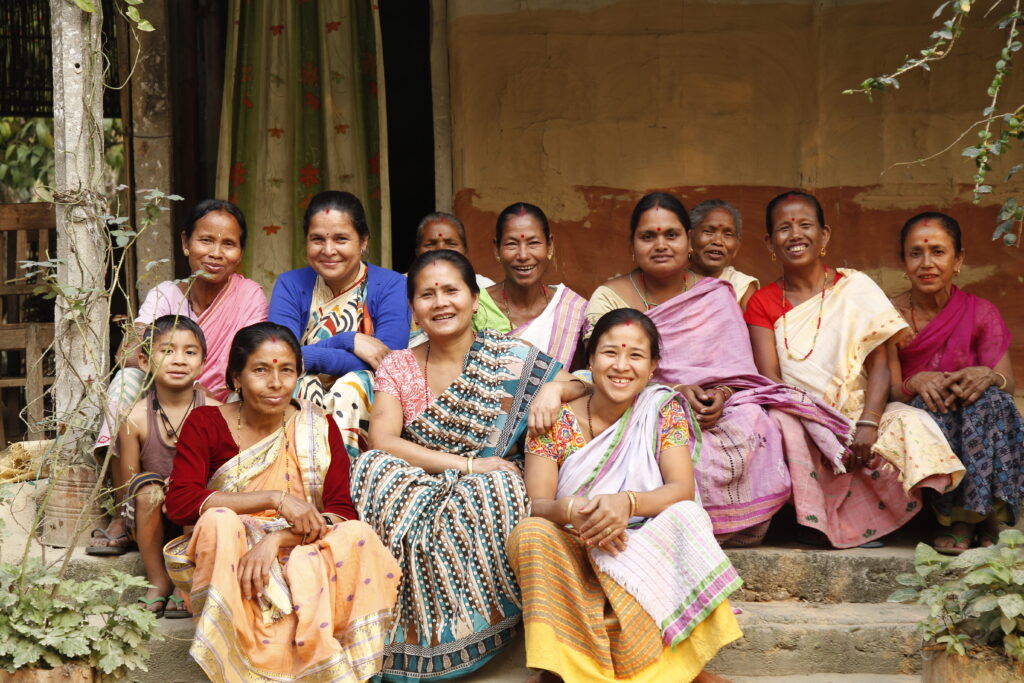Bir Billing, Himachal Pradesh – June 2025: Amid the lush Kangra Valley and under starlit Himalayan skies, music lovers gathered for the Bir Music Festival 2025. The two-day festival (June 14–15) wasn’t just a feast of sound and art; it also became a pioneering showcase of eco-friendly celebration. As the Official Sustainability Partner of Bir Music Festival’s 12th edition, Tamul helped turn this mountain fiesta into a zero-waste dining experience. In a region world-famous for its natural beauty, the festival’s commitment to sustainability, with Tamul’s support, ensured that the only traces left behind were happy memories and compostable plates returning to the earth.
A Partnership of Shared Values in the Mountains
From the outset, the partnership between Tamul and the Bir Music Festival seemed like a perfect match. Bir Billing’s festival prides itself on being one of Himachal’s most eco-conscious events, emphasizing a “sustainable festival” ethos of no single-use plastics and leave-no-trace principles. Tamul, a social enterprise from Assam, shares these values at its core. Tamul transforms naturally shed areca palm leaves into stylish biodegradable tableware, marrying environmental responsibility with rural empowerment.
This alignment in mission made Tamul an ideal ally for the festival’s goals. Organizers knew that protecting the pristine Himalayan environment meant rethinking festival waste, and Tamul’s all-natural plates offered a solution that was both practical and principled.
The collaboration was more than a business arrangement, it was a statement. Both Tamul and the festival organizers believe that cultural events can celebrate nature instead of polluting it. By choosing Tamul’s products, the Bir Music Festival demonstrated support for sustainable innovation and for the communities who produce these eco-friendly wares. As one festival announcement had noted, Tamul is a “wonderful enterprise making biodegradable disposables that decompose easily,” underscoring the shared commitment to “let’s vibe responsibly” in the Himalayas.
Zero-Waste Dining: Tamul in Action
On the ground at the festival, Tamul’s impact was immediately visible in every food stall and serving area. Bright and earthy-toned areca leaf plates replaced the usual plastic and styrofoam foodware, eliminating the typical piles of plastic trash. Festival-goers grabbed local Himachali snacks and meals served on sturdy palm leaf plates that brought a rustic charm and guilt-free convenience.
Each plate was 100% compostable, designed to be thrown into a compost pit rather than a garbage bin. By the end of the festival, organizers marveled at how little non-biodegradable waste was generated in the dining areas, a rare sight for an event of this scale.
In fact, Tamul helped the festival replace over 8,000 single-use plastic plates with biodegradable alternatives. This massive swap meant thousands of plastic items avoided and a significant reduction in litter. The tables below the Dhauladhar peaks became a place of “zero-waste dining”, just as Tamul had promised.
Reflecting on the experience, the festival’s founder shared,
“Tamul’s eco-friendly plates were a true blessing for our food stalls. In a remote mountain setting like Bir, where decomposing waste is a major challenge, their compostable plates made cleanup effortless. In 12 seasons of BMF, Tamul stands out as one of the best partners we’ve worked with, not just because of the product, but because of the values it represents. This is more than just a product, it’s a message. A small, conscious choice that made a huge impact on the ground, and in the hearts of our attendees. We’re proud to continue this partnership.”

Key Outcomes:
- 8,000+ plastic plates eliminated: All those meals were served on palm leaf plates instead, preventing an equivalent number of disposable plastics from ending up in landfills.
- 100% compostable serveware: Every plate and bowl was made from fallen areca palm leaves, sustainable, durable, and naturally compostable, meaning festival dining was entirely plastic-free.
- Cleaner festival grounds: With no plastic or Styrofoam litter, the post-concert cleanup was easy. Used Tamul simply returned to the soil within weeks, leaving the Himalayan venue as pristine as it was found.
- Positive buzz: Attendees noticed the difference. Many enjoyed their food more knowing the plates were “planet-approved” and locally made, reflecting the festival’s conscious vibe.
Food vendors also appreciated the change, Tamul’s areca leaf plates are leak-proof and sturdy, holding up to piping hot momos, curries, and even soups without a fuss. Unlike flimsy plastic or paper plates, these held their form and kept meals mess-free, all while being totally free of chemicals or coatings. The convenience for vendors and delight for attendees proved that going green did not mean sacrificing quality or experience. On the contrary, dining on Tamul became part of the festival’s charm, a talking point almost as popular as the music line-up.
Empowering Producers with Every Plate
Beyond the immediate environmental benefits, each Tamul plate at Bir carried a deeper story of social impact. Tamul is built on empowering rural arecanut leaf plate producers, particularly in India’s North East. The disposable plates and bowls are crafted through community-run micro-enterprises that turn waste palm leaves into livelihood opportunities. By supplying Bir’s festival with eco-friendly plates, Tamul was also supporting the producers back in Assam who made them.
These clusters have generated a livelihood for 100+ producers in rural remote villages.
Additionally 5000+ women and youth earn a livelihood by supplying areca sheaths to these clusters or working a hired labour.

By transforming fallen palm leaves into compostable tableware, Tamul creates dignified jobs for the extreme poor, turning environmental solutions into economic opportunity.
The plates in Bir’s food courts represented hours of skilled artisan work, collecting sheaths from betel-nut (areca) trees, cleaning and heat-pressing them into elegant plates and bowls. It’s a process that uses no chemicals and very little energy, yet produces a product elegant enough for modern events and sturdy enough for heavy servings.
Festival organizers highlighted that this partnership uplifted communities while uplifting the guest experience, aligning perfectly with their ethos of conscious celebration. In the Himalayas, far from Assam, the fruits of those arecanut leaf plate producers labor shone, proving that sustainability can unite distant communities for a common cause.

Reactions and Reflections: A Greener Festival Experience
The response to Tamul’s presence at the festival was overwhelmingly positive. Attendees found it refreshing to enjoy their meals without the pang of guilt that usually comes with tossing out plastic plates.
“It feels great that everything we’re using won’t pollute this beautiful place,” one concert-goer remarked.
The visual of compost bins filled with palm plates instead of overflowing trash cans was a powerful statement. Many festival-goers even said it made them more mindful, seeing a large event manage waste responsibly inspired them to be more eco-conscious in daily life.
Organizers, too, were delighted by the outcome. Bir Music Festival had aimed to set a benchmark for sustainable events in the region, and with Tamul’s help, they achieved tangible results. One program director from a similar event observed that most festival waste can become compostable when biodegradable serveware is used, drastically reducing landfill burden.
Bir’s own management echoed this realization. With refillable water stations and locally sourced decor, the plastic-free dining experience truly stole the show. Attendees raved on social media about eating off “cool leaf plates” and how the venue stayed clean despite two days of nonstop celebration.
Perhaps the most telling reaction came during the final cleanup: almost nothing needed to go to a landfill. The used areca plates were composted, glass and cans were recycled, and the grounds were nearly spotless.

Toward Greener Celebrations – A Call to Action
The story of Tamul at Bir Music Festival 2025 is part of a larger movement toward sustainable celebrations. From remote festivals to urban events, more organizers are realizing that eco-friendly choices are not only possible, they’re powerful.
Replacing plastic plates with biodegradable ones might seem like a small step, but it significantly cuts down pollution and carbon footprint. Tamul’s own data shows that switching to areca-based tableware helps reduce up to 4 metric tons of CO₂ emissions per day that would have come from producing and disposing plastic.
Festivals are microcosms of society, if we can celebrate sustainably for a weekend, we can carry those habits into everyday life.
Bir’s 2025 edition offered a glimpse into a future where large-scale gatherings leave minimal impact and maximum inspiration. And Tamul is proud to be part of that future.
Join the Movement
Tamul extends a warm invitation to event organizers, brands, and conscious consumers: let’s make every celebration a celebration of sustainability.
Whether you’re planning a music festival, a wedding, a community gathering, or simply a picnic in your backyard, there’s always a better way to serve.
Let’s serve the planet, one biodegradable plate at a time.

